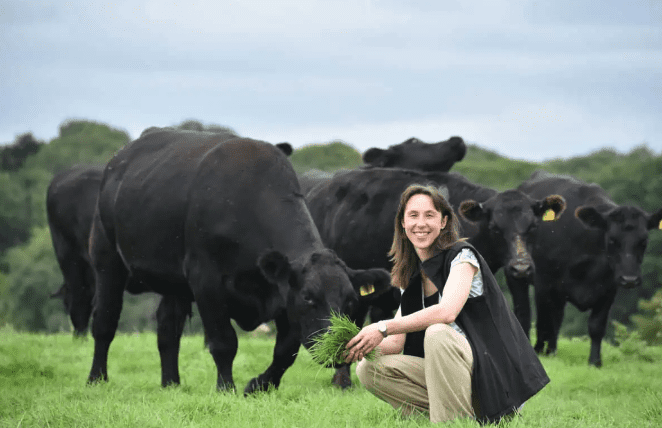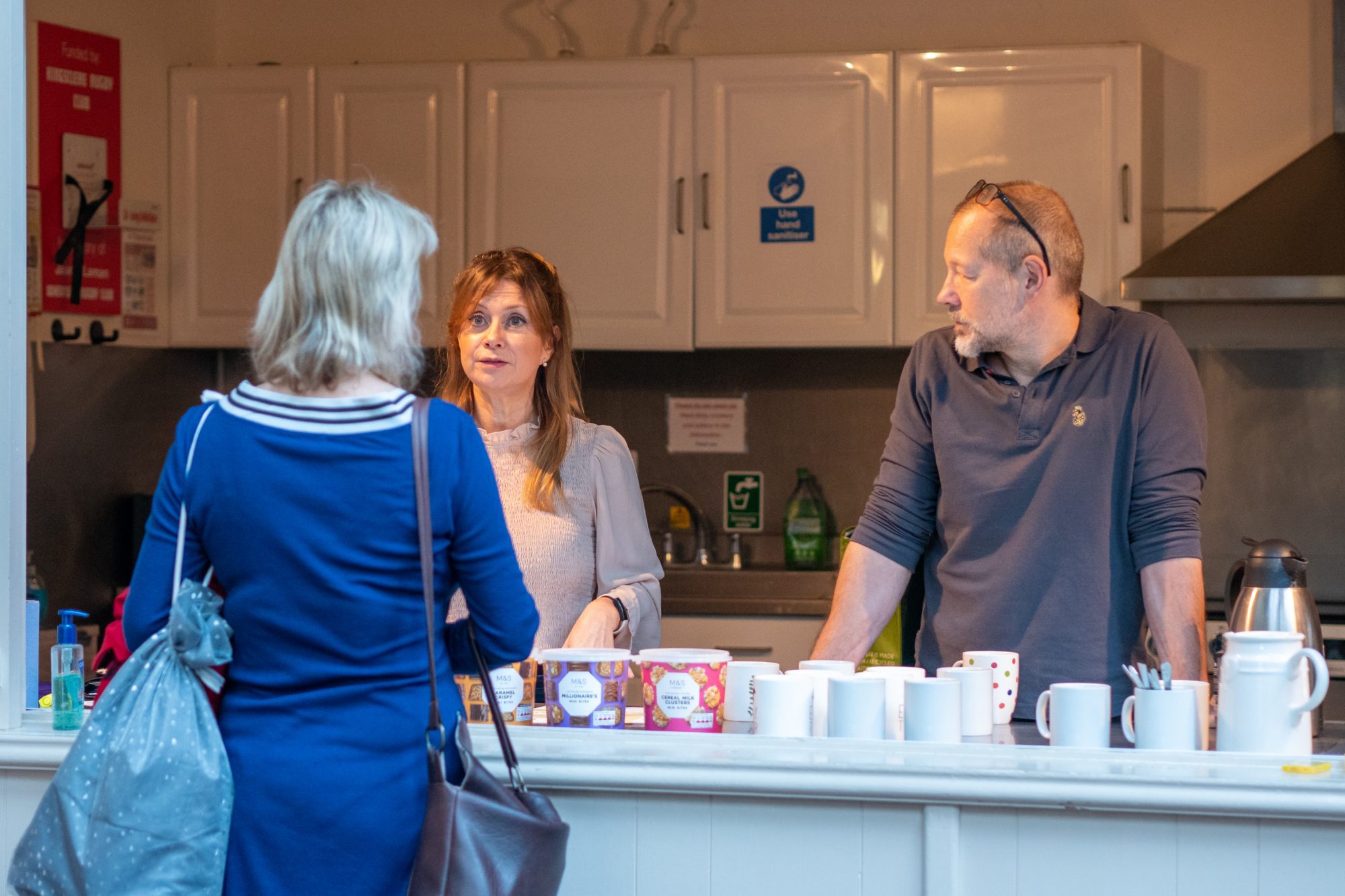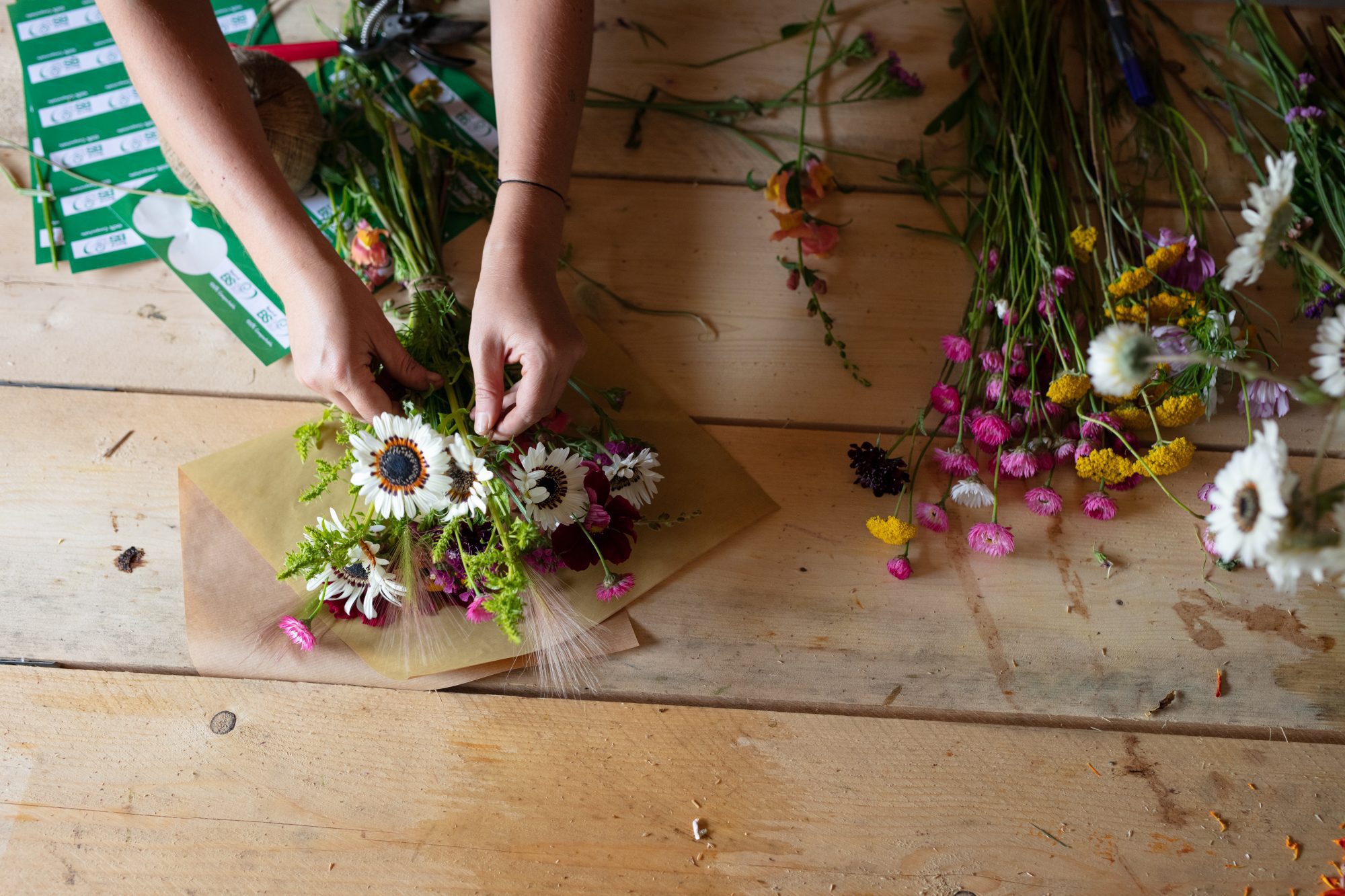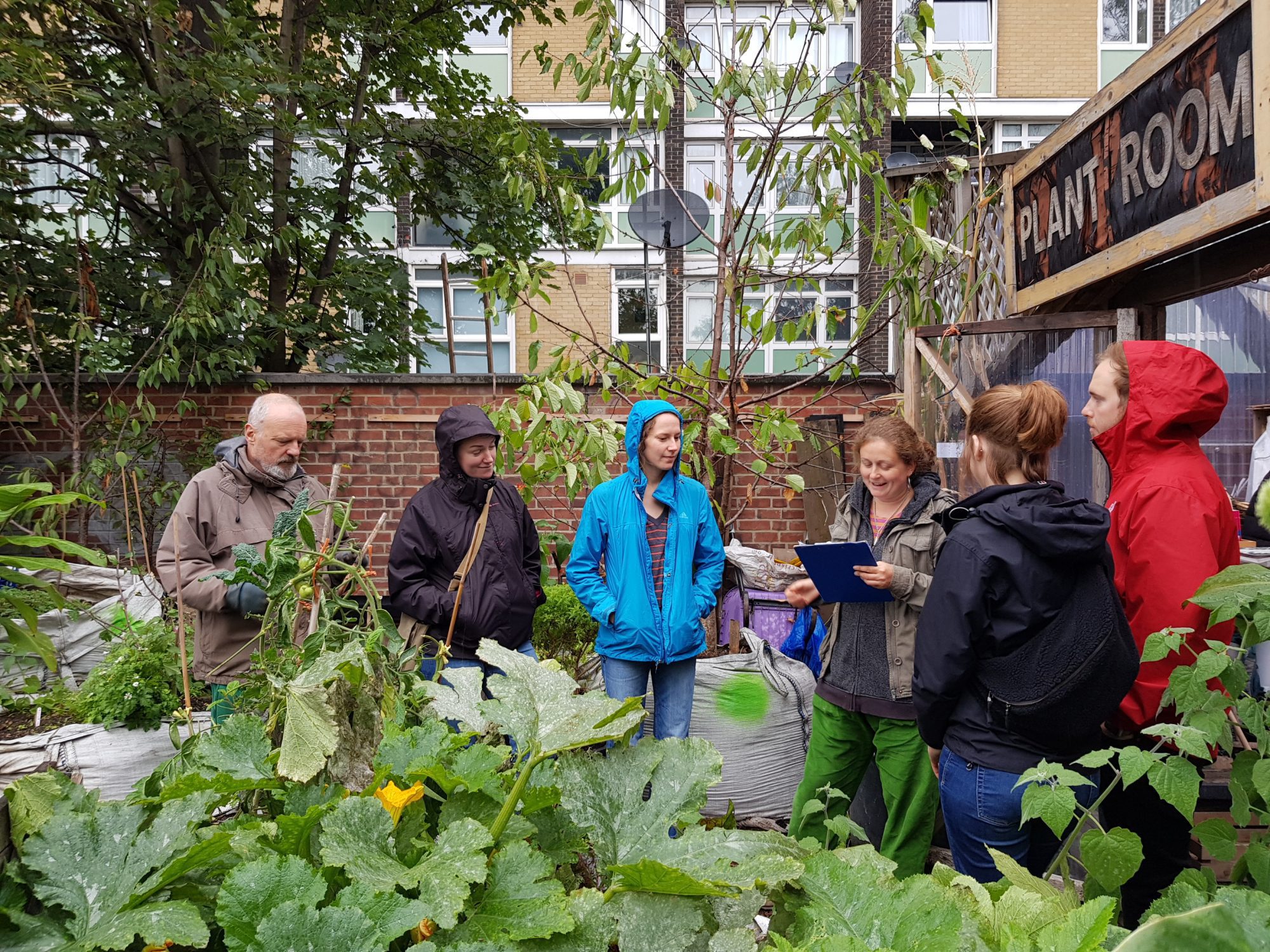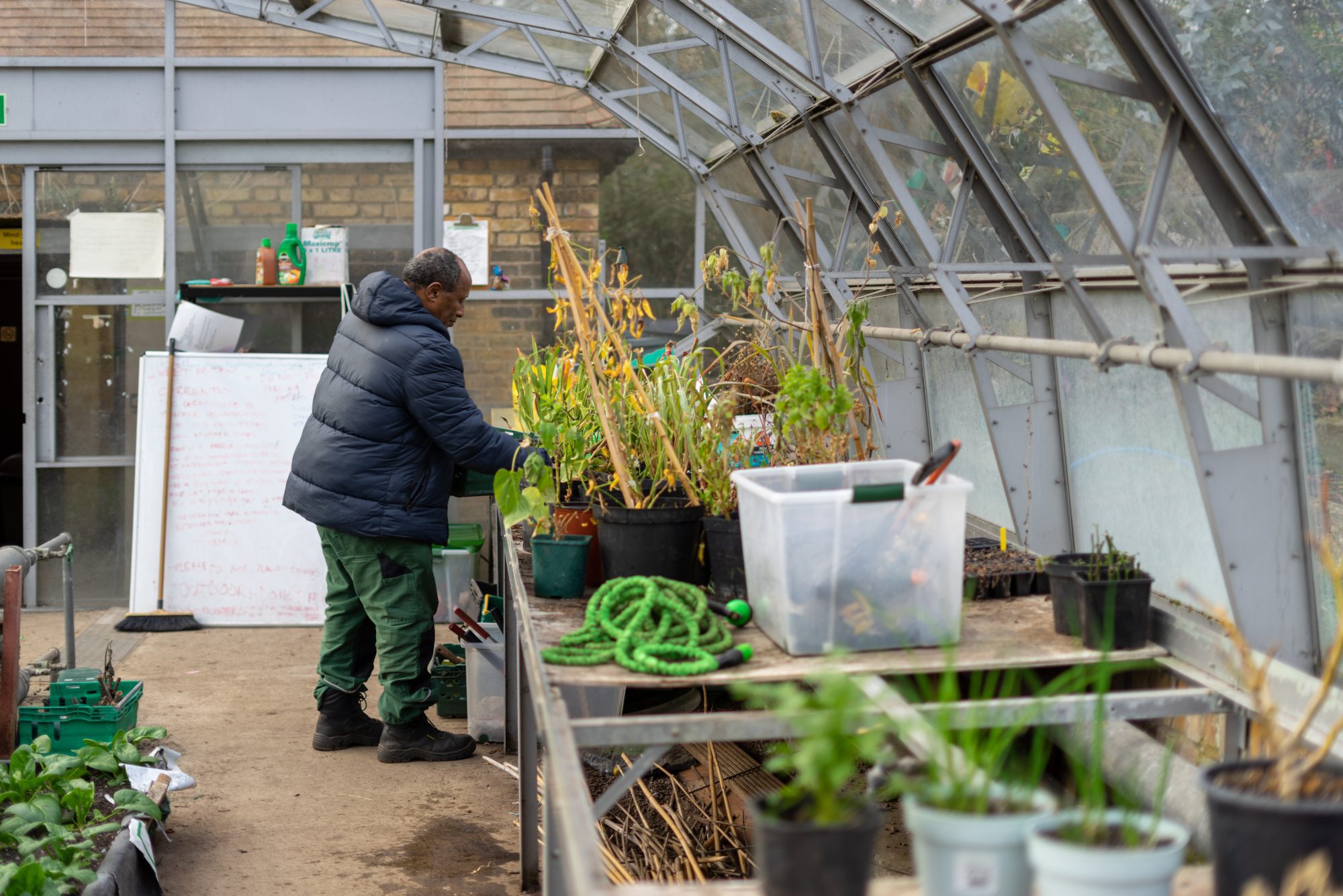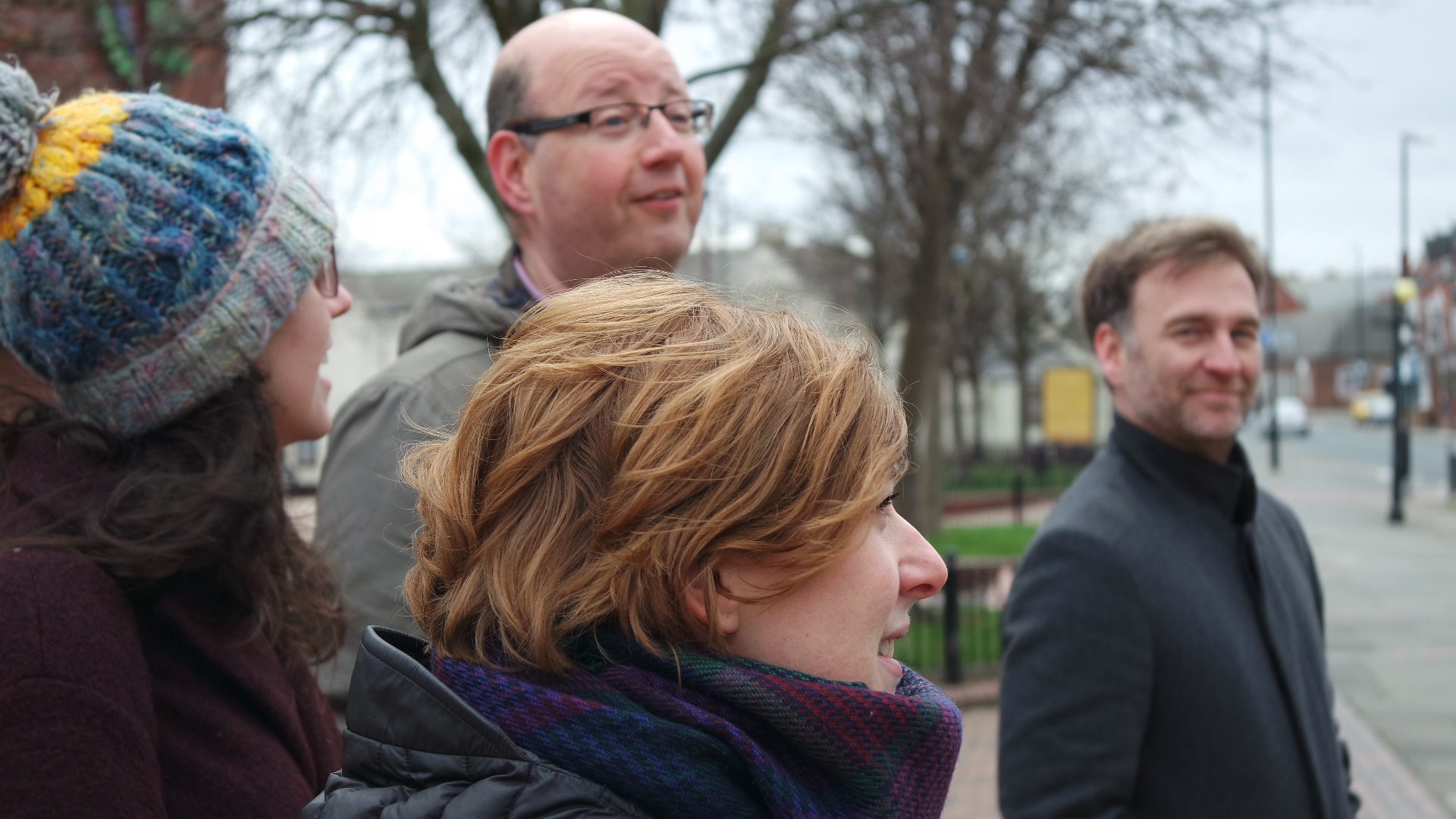Fordhall Farm is a community-owned organic farm located in Shropshire. The farm produces a variety of organic vegetables, fruits, and livestock, and offers educational programs, events, and workshops to the local community. Fordhall farm has a farm shop and café on-site where visitors can buy their produce, as well as a range of other locally sourced products. The farm operates with a strong commitment to sustainability and prioritises the welfare of the animals and the land.
Fordhall Farm has been chemical-free for over 75 years after its organic pioneer, Arthur Hollins realised the harmful effects on the farming system. The result is a farming system low in inputs, healthy for the livestock, whilst sustaining the biodiversity and health of the soil.
This unique farm was inherited by Arthur’s children, Ben and Charlotte Hollins in 2004. Having to fight to save the farm from developers, they received advice which encouraged them to form a community land initiative to own the farm’s freehold. This combined their hope of continuing farming with the aim of having the land in community ownership to protect it in perpetuity and promote interest in small-scale organic farming. In order to transform their family run farm into a community owned model, the siblings had to raise £800,000 in less than six months. They achieved this feat by offering £50 non-profit-making shares to the public, successfully selling 8,000 shares to community shareholders.
In 2006, they formed the Fordhall Community Land Initiative, an Industrial and Provident Society (IPS) which allowed the farm to be owned by the community. And with this, Fordhall farm became England’s first community-owned farm. Since then, the farm has become a thriving example of community-owned agriculture, winning numerous awards for its innovative and sustainable approach to farming.
Fordhall farm includes two business entities, Fordhall Community Land Initiative, a community-owned farmland, and Fordhall Farm Ltd, a commercial farm business. Managed by Charlotte Hollins, Fordhall Community Land Initiative uses the farmland to benefit the community to increase awareness of sustainable food and farming. The initiative offers numerous services, activities, and social events that makes a difference to local people and area in several ways. For example, the community garden works with adults with learning disabilities, which not only provides them with opportunities to learn and socialise but also produces fresh organic produces for the community. The youth project also provides support for vulnerable young people. The farm also offers free access to the farm for the wider public through waymarked farm trails, which allows people to connect with nature and learn about food and farming. Ben Hollins, a tenant farmer who runs Fordhall Farm Ltd, rents the land and building from the initiative. Through Fordhall Farm Ltd., Ben manages a farm shop and butchery on-site at the farm.
Fordhall farm’s 140-acre site has been managed sustainably for livestock farming since the 1940s. The site has been able to continue its low input and chemical-free farming practices, and recent carbon measurements show a high average of 10% soil organic carbon matter within the site’s soils. The Community owned model has enabled the farm to remain as a green space and accessible to the public. Since being placed into community ownership, over 5,000 trees have been planted onsite, three ponds have been restored, and one new pond has been created. Plans are in place to plant new hedgerows and tree lines throughout the farm.
Fordhall Farm Land Initiative started tracking it s carbon footprint, aiming to monitor their effectiveness in reducing their outputs and reaching net zero by 2030 – a strategy their board have committed to.
Fordhall farm provides great evidence of how the community-owned farm model is possible to thrive. It can increase community cohesion, create sustainable environmental changes, and benefit community all at once. According to 98% of Fordhall supporters, they would support another community farm buy-out after their experience with Fordhall.
